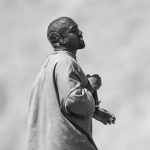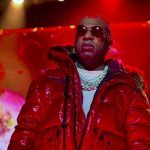Several artistes recently signed an open letter, requesting protection from artificial intelligence (A.I).
According to the artistes, the emergence of A.I is an assault on creativity and must be stopped. The letter indicated that the increasing use of technology to imitate performers’ voices and appearances has reached alarming proportions.
It also argued that it could have a detrimental impact on the music industry in the future if important steps are not taken with immediate effect.
In times past, artists like Nicki Minaj, Billie Eilish, Stevie Wonder, and many more have had their voices or likenesses imitated.
“This assault on human creativity must be stopped. We must protect against the predatory use of A.I to steal professional artistes’ voices and likenesses, violate creators’ rights, and destroy the music ecosystem,” the letter reads.
The Artist Rights Alliance, a non-profit run by several music industry veterans, reportedly penned the open letter. Johnny Cash’s daughter, Rosanne is a board member of the organization.
This is not the first time artistes have come together to request protection from A.I.
A few months ago, over 300 people in the creative space teamed up to sign a letter in support of the bipartisan No Artificial Intelligence Fake Replicas And Unauthorised Duplications Act.
Those who signed it included 21 Savage, Chuck D, Common, Mary J. Blige, Missy Elliot, Questlove, Nicki Minaj, and Cardi B.
A portion of the Act assured the signees that the idea is to defend their fundamental human right to their voices and likeness while protecting them from non-consensual deepfakes.
It encouraged them to protect their individuality and support the cause.
Announcing the Act, a representative, Maria Elvira Salazar noted that the plan was to plug the hole in the law and give both the artistes and the US citizens the power to protect their rights, creative work, and fundamental individuality online.





